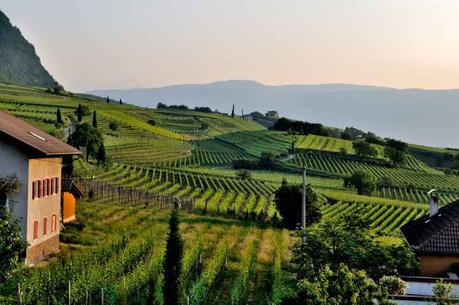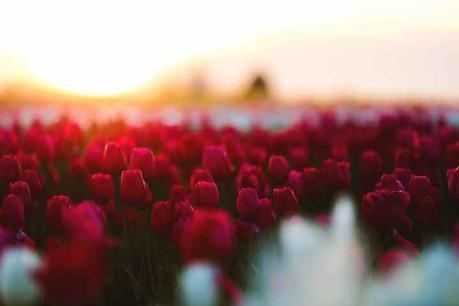In the classes I teach at Stevenson University, students know that I have the propensity to use writing prompts in class to get them writing creatively and telling little stories. Their purpose? Simply to practice writing.
Often, when I have the inclination to write something but am in-between novels, I use writing prompts a lot. There are three main reasons to use a writing prompt:
- It gets you writing (as stated above) and thinking creatively.
- It gets you thinking in way you may not have been thinking when you started staring at the blinking cursor and allows you to take a writing journey.
- It can turn into something wonderful.
Years ago, I wrote a prompt that I loved so much, I used portions of it in my first novel. You can click here to see that particular piece writing if you would like.
I like the idea of someone giving me an idea to write about because it pushes me, just as those I give the students push them. It’s also fun to see where students take the prompts. For example, Student X might take the story one way, Student Y might take it another way, and Student Z might take it in an entirely different direction. That’s the beauty of prompts and of writing: we imagine things differently, and sharing that journey is exciting.
A website I use to garner writing prompts comes from Writing Exercises UK.
Today, I got the first line for the prompt from that site, and I’m going to share what I did with it. It’s totally rough, because that’s what writing prompts should be. They are a launching pad to see if you want to explore it further when you are done.
I hope you take the time utilize writing prompts to see where your creativity may take you.
Enjoy the writing journey.
***
The first line generator gave me this first line:
There was a legend about the well in the garden…
Here’s the story.

There was a legend about the well in the garden. Groundskeepers said the well held a secret to the old home and its matron, Cynthia LaMontagne, who lived on the property for all 100 years of her life. Born on the second floor to her own mother, Cynthia inherited the home upon her parents’ deaths and raised all eight of her own children on the property. The secret of the well was not a pretty one, and it reflected a haunting tale that left me searching for answers after spending time on the grounds of the old estate, set in the hills of France.
You see, I was not personally acquainted with Cynthia LaMontagne until she was eighty, and I was a college graduate back in 1998, the youngest of three children of Cynthia’s son, Martin, who had met an American woman, my mother, and moved to the United States in his early thirties. My father and his mother spoke only rarely and upon occasions when it was mandatory. However, it had been promised to me for ten years that upon my college graduation and at my grandmother’s urging that I would get to spend a month with her on the large estate in France so that I could see a little bit of Europe before I began a career in advertising in New York City.
I did not speak French, which would make conversations with Cynthia challenging, but my father had very nicely hired a local French woman who was bilingual as a translator to help with that. Despite turning eighty the summer I visited, she didn’t look much like eighty at all. She was a thin woman, with a strong nose and inset blue eyes. Her hair was white, but long, and she wore it in a bun on the top of her hair.
When I first arrived to Vue Sur Le Jardin, I was in awe of the expansive balcony on the second floor with vistas of the gardens—wildflowers everywhere—and of course, a small vineyard on the left side of the property. The house itself was not massive, but the grounds were. New York City has its skyscrapers and glittery skyline, but the view from that balcony was one to be envied.
“Bien?” my grandmother asked, smiling, seeing me taking in the scenery. It was an awkward initial greeting, hugging each other gently, the two of us having never met in person.
“Oui.”
On that first day, the translator had not yet arrived, and so Cynthia and I were content with lots of smiling and gesturing. Thankfully, the next morning, Helen arrived to take over on day two and to help me communicate with Cynthia. We sipped our coffees on the veranda, and she seemed like a nice person.
“Aimeriez-vous vous promener dans les jardins pour que je puisse vous connaître?” Helen asked. I looked at her squarely.
“I’m sorry, Madamoiselle. Would you like to stroll that gardens so that I may get to know you?” she asked in very broken English.
“Yes,” I said.
We began our descent to the main lawn, a rolling hill, with trees atop blowing in the wind. We came upon the wishing well, covered in ivy, wildflowers growing in all directions around it.
“C’est charmant,” I said, trying to practice my French so as to not disappoint.
“Yes,” Helen said. “It is charming, but there is a story, you see. One we don’t speak of.”
I looked at her puzzled. It always felt like something had been missing from my father’s stories, and there were not many. When I asked about his youth, he always dismissed them as good, with little elaboration. It was apparent standing among these gardens that I knew nothing about my father’s younger days. How could he not have told me all about the estate of Vue Sur Le Jardin?
“But you have to tell me. I’ve come all this way to understand my father’s upbringing and get to know my own grandmother who I’ve only just met in person yesterday.”
“I cannot speak it,” Helen said.
“But you must now,” I said.
Helen looked away with fear. Something had rattled her very core, as we stood among the beauty, a picturesque paradise annointed with flowers and stone paths highlighted by an abundance of sunlight.
“Your father’s sister, you see,” Helen said pointing to the well.
“My father’s sister is in the well?”
“I’m afraid the sad story is that your father’s sister was pushed and died in the well…”
***
To be continued…maybe.

 **
**


